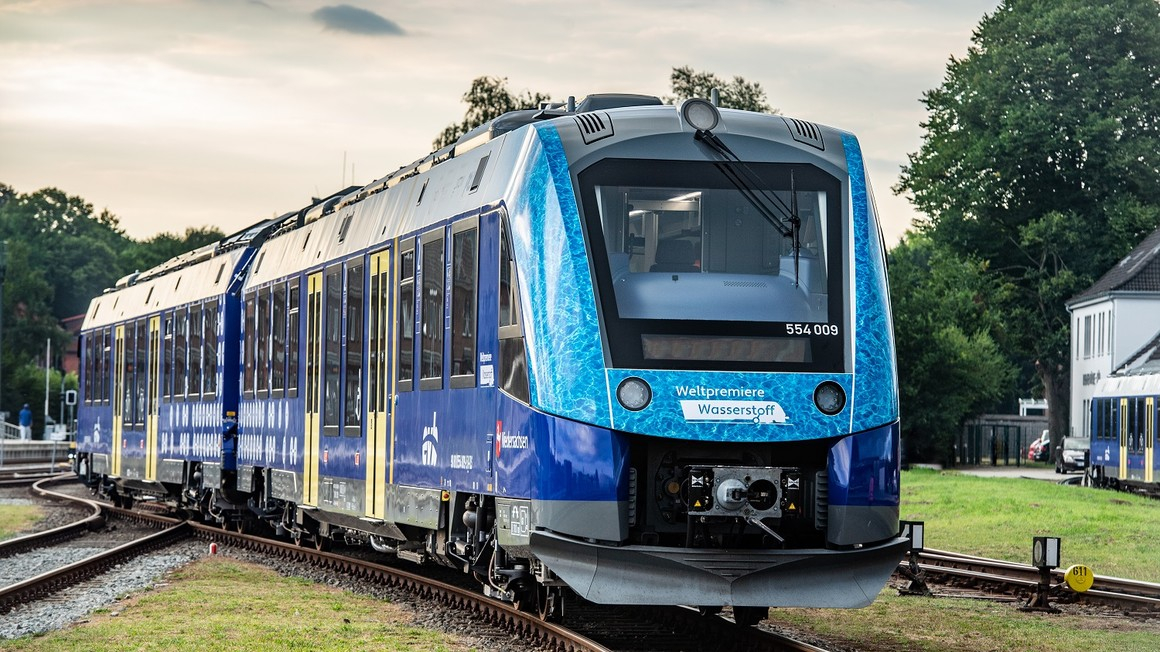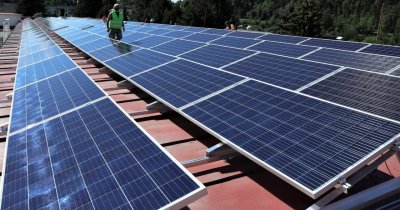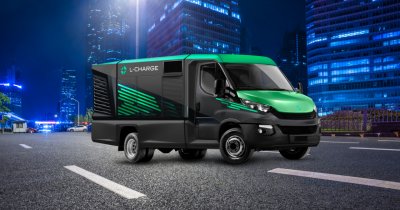The 14 vehicles with fuel cell propulsion belong to Landesnahverkehrsgesellschaft Niedersachsen (LNVG).
LNVG had already started looking for alternatives to diesel trains in 2012 and thus provided momentum for the development of the trains in Germany.
Other project partners for this world debut are the Elbe-Weser railways and transport company (evb) and the gas and engineering company Linde.
On the route between Cuxhaven, Bremerhaven, Bremervörde and Buxtehude, 14 hydrogen-powered Alstom regional trains will be operated by evb on behalf of LNVG, gradually replacing 15 diesel trains.
They will be fuelled daily and around the clock at the Linde hydrogen filling station.
The trains have a range of 1,000 kilometres and can run all day long on just one tank of hydrogen on the evb network.
The trains travel at speeds of 80 to 120, with a maximum speed of 140 kilometres per hour.
Regarding the fuelling system, the Linde facility in Bremervörde contains 64 500-bar high-pressure storage tanks with a total capacity of 1,800 kilograms, 6 hydrogen compressors and 2 fuel pumps.
The use of hydrogen as a fuel for trains noticeably reduces the burden on the environment, as one kilogram of hydrogen replaces approximately 4.5 litres of diesel fuel.
Accroding to the company, Alstom currently has four contracts for hydrogen fuel cell powered regional trains.
Two are in Germany, the first for 14 Coradia iLint trains in the region of Lower Saxony, and the second for 27 Coradia iLint trains in the Frankfurt metropolitan area.
The third contract comes from Italy where Alstom is building 6 Coradia Stream hydrogen trains in the region of Lombardy – with the option for 8 more, while the fourth is in France for 12 Coradia Polyvalent hydrogen trains shared across four different French regions. Furthermore, the Coradia iLint has been successfully tested in Austria, the Netherlands, Poland, and Sweden.
 Oana Coșman
Oana Coșman












Any thoughts?